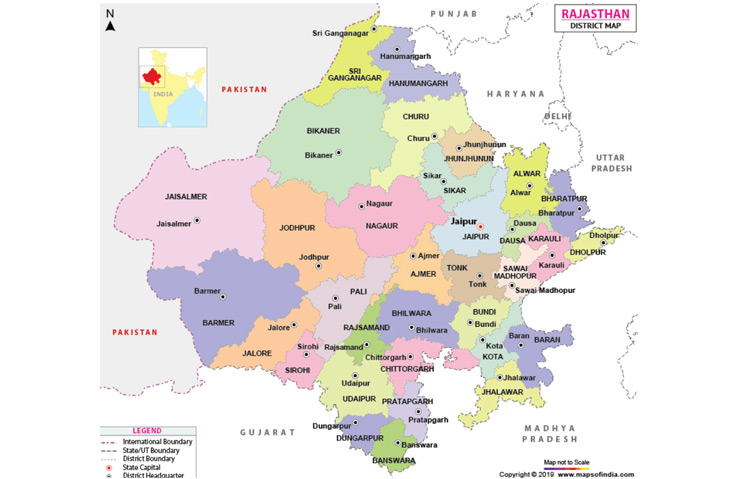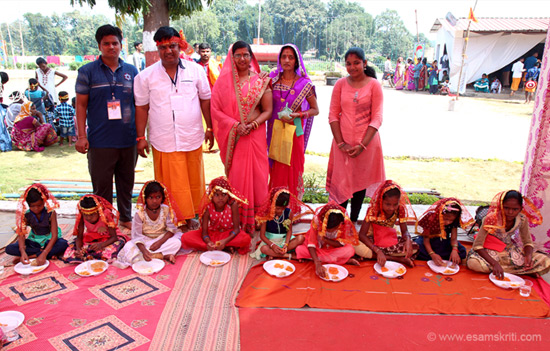-
Why Marwaris take to
business? What do their kids hear at home? Why does the community have business
acumen? What does the term Marwari represent?
Well known author and former head of Proctor and Gamble India
Gurcharan Das said
in Mint,
“I was reading the Forbes’ list of (Indian) billionaires for 2007; I remember most of the names belong to great trading communities. So the much reviled caste system may have come to our aid when it came to the economic rise of India.” Source
During the last few years
read about start ups, many of whom had a co-founder from a Marwari background.
During my corporate life and thereafter read about how Marwaris make very good
accountants. In fact, the
Tata negotiating
team
for purchase of aircraft from Airbus
was led by two Agarwals (Nipun and Yogesh), both of whom belong to the business
community.
Read
13
Marwaris who are ruling the Online business
All this got me curious, goaded
me to research and write this piece.
Today, the term Marwaris
is used for anyone from Rajasthan. Strictly speaking only those coming from
Marwar (districts of Jodhpur, Jaisalmer, Bikaner, Nagur, Pali, Jalore etc) can
be called Marwaris.
Besides Marwar, which are
the other regions of Rajasthan?
There is Mewar (Udaipur,
Chittorgarh, Dungapur, Banswara, Rajsamand etc), Shekhawati (
Sikar, Churu, Jhunjhunu, Khetri),
Dhundhaad (Jaipur), Hadoti (Kota, Bundi, Baran, Jhalawar etc) and Mewat (Alwar,
Bharatpur etc).
 District wise map of Rajasthan so you get an idea of regions. Courtesy Maps of India.
District wise map of Rajasthan so you get an idea of regions. Courtesy Maps of India.
Again the term Marwari is construed as
all people living in Marwar. However, when spoken about in the context of business
it means those belonging to the business community and not people from the four
varnas. I must clarify that it is not
to mean those belonging to other varnas are not good at business.
Within Marwaris, the business community can broadly be divided into Maheshwaris, Oswal (Jains) and Agrawal (includes Guptas, a often heard surname).
Another
commonly used term is Baniya. They are found in Rajasthan and Haryana. All Marwaris are not Baniya but together they constitute the Vaishya (one of the four varnas) Samaj which includes Jains as well. That could be one reason why wedding within members of the Vaishya Samaj are common. Though most Jains in the region are said to be Baniyas, I have met a few Jains who said they are Rajputs because their ancestors adopted Jaina Darsana.
 Baniya from Haryana. His business failed in 3 towns before he found success in Dantewada, Bastar. Pic 2018.
Baniya from Haryana. His business failed in 3 towns before he found success in Dantewada, Bastar. Pic 2018.
Marwaris are found
throughout India. A popular saying goes,
Jahan
bailgadi nahin jathi, vaha Marwari jata hai
implying a Marwari goes for business even where there is no mode of transport available. When there are few opportunities at home, going out was the only option for the business community.
Marwaris started off as traders, commission agents and stock brokers. Today, many of them have got into manufacturing and run international operations too.
Why do most of the
business community come from Marwar and Shekhawati regions?
Aditya
Pittie, Founder and CEO
of Pittie Enterprises Group Pune
says, “Marwar is located in a region that historically served as a crossroads for trade routes, connecting various parts of India with Central Asia. This geographical advantage exposed the Marwari community to diverse cultures, ideas, and trade opportunities, encouraging them to develop business skills. Further, Marwar is a semi-arid region with limited natural resources. To thrive in such an environment, the Marwari community had to be resourceful and find alternative means of livelihood. Many turned to trade and business, which further honed their entrepreneurial abilities.”
In Marwar scarcity of water and cultivable land meant there was limited scope for farming (The Indira Gandhi Canal came to Marwar post Independence).
Mewar, with its capital Udaipur
known as the
City
of Lakes
, had water. So did Hadoti with the river Chambal. In Shekhawati,
agriculture was an occupation but the area was subject to very extreme
temperatures.
Now coming to the main
question,
Why do Marwaris take to business?
Rishi
Agrawal, Co-Founder and CEO, TeamLease Regtech, Awfis Space Solutions Pvt Ltd says that Marwari kids hear about –
1. “Being frugal - They do not spend more than required. They demand value for every penny spent. In business, being frugal is a virtue. It elongates one's ramp and creates opportunities to survive longer.
2. Working hard
- Most Marwaris are hands on and not
9 to 5 people. They enjoy working hard, a key ingredient for long-term success.
3. Marwaris
are
mobile
-They do not mind travelling or
relocating anywhere for business. Wherever there is a business opportunity
you will find marwaris migrating. They are in Kolkatta, Chennai, Imphal just
about any part of India.
4. Academically focused
-A disproportionately large
number of Chartered Accountants, Engineers and Doctors are Marwaris.
5. Thrive in undefined/uncertain environments
-
They are not looking for a defined job description or a guarantee of
return.
6. Marwari children hear about making / losing money from their parents early in their lives. There is comfort around the concept of money. Money is not looked as a taboo conversation topic in the family. Making money is considered to be a sign of success.
7. Marwari children observe their parents being bosses of their businesses. Their self image is that of job givers rather than job seekers.”
For
centuries, their ancestors lived and worked in difficult conditions and uncertainty
so there is an inherent desire to take risks, adjust and excel.
The development of business acumen within the Marwari community
can be attributed to several factors.
Besides the historical reasons referred to above Aditya adds, “Emphasis on Education: The Marwari community recognizes the value of education as a means to empower individuals and enhance their business capabilities.
Experience in Traditional Trades: Marwaris have traditionally been
involved in various trades such as textiles, spices, jewellery, and finance.
Culture of Risk-taking: Marwaris are known for their willingness
to take calculated risks in business. They have developed a knack for
identifying opportunities, assessing risks, and making informed decisions.
Marwaris focus on building sustainable businesses that can be passed down to future generations.”
Why have Marwaris succeeded in business?
A senior Chartered Accountant who now runs a Private Equity Fund says, “At a conceptual level, there are two reasons why Marwaris have traditionally succeeded in business. The first one is how the persona is developed through the system of reward and punishment and informal education received from the family and relatives - so strongly imbibed that it becomes culture. Other reason is the existence of a great ecosystem.
Every wave of Marwari business people has supported the subsequent wave of migration. This has been a huge advantage for a young Marwadi entrepreneur in the years gone by. The ecosystem can be community based and geographical. It is interesting to note that Marwaris have not done well in the U.K. and the United States where Gujarati and Punjabi ecosystem is much better. The benefit of ecosystem should not be underestimated. Today, the same thing is true for Silicon Valley and closer home Bengaluru where the tech ecosystem is extremely strong.”
I asked Aditya Pittie, how house culture influenced a Marwari
child?
He replied that a lot of the above values were inculcated during childhood through business talk on the dining table, visit to offices/factories during Diwali, Independence Day etc, discussions about famous business leaders thereby creating heroes and role models, emphasis on education and excellence, encouraging competitiveness and importantly promoting networking and strong family ties through large family gatherings.”
During my working life, found Marwaris to be very good in finance and sharp. It seemed that numbers and money management came naturally to them. One of them was in a job but he would find time to dabble in gold and silver trading. The community is also supportive of others members and willing to help when another is in trouble.
I have also found the Marwari community in numerous philanthropic initiatives for e.g. the Friends of Tribal Society is run by the community women.
The business community exists in every state of India, some
smaller some larger in size. Some of the prominent Marwari businessmen known
countrywide are L N Mittal, Kumarmangalam Birlas, Sajjan Jindal, Anil Agarwal, Rahul
Bajaj, Ajay Piramal, Sunil Mittal, Ruias, Goenkas and Singhanias. Some
names
in the new age sector
are Deepinder Goyal (Zomato), Sachin and Binny Bansal
(Flipkart), Peyus Bansal (Lenskart). Earlier Sekhsaria of Ambuja Cement sold
out to Lafarge.
The deeper point I wish
to make is that India has such a vibrant and dynamic community, represented by
the Vaishya Samaj, because of the Varna system. The community has significantly
contributed to wealth and job creation in India.
The absence of this community creates problems as columnist Aakar Patel wrote in the Mint. He said that the real reason for the four conditions that trouble scholars of Pakistan was imbalance in caste. “In a part of the world where culture trumps individualism, Pakistan has no community left to resist its drift into becoming an irresponsible state and a danger to itself.”
The community who could do
this, the Khatri-Arora combine migrated to India in 1947 leaving no mercantile
caste in Punjab.
To
read this interesting article
Khatris are Punjabi Kshatriyas but i.e. a different story.
Respected Gurcharan Das’s words in para one shall stay with me forever.
Also
read
1.Marwari’s talent comes from Baniya Buddhi
2.
Decoding
the Marwari model of business success
3.
Marwari
community and the brains behind business
4.
The
Shekhawati story
5. What makes Marwaris thrive in France
6. Caste as Social Capital